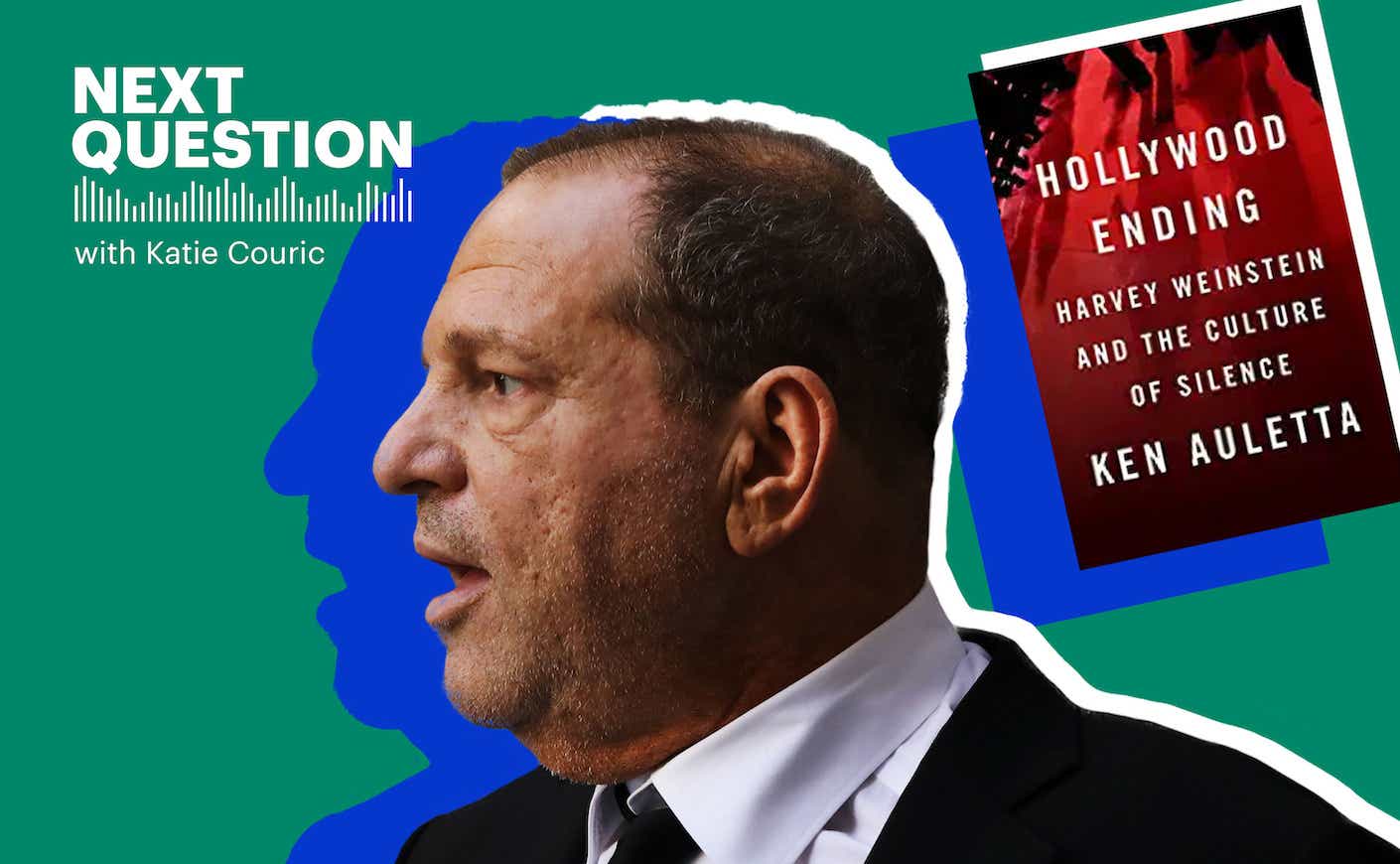Twenty years ago, journalist Ken Auletta tried to break a story about Harvey Weinstein’s consistent and abhorrent sexual abuse of female employees and associates. Unfortunately, Auletta’s efforts to depict Weinstein’s monstrous behavior were unsuccessful; for decades afterward, Weinstein continued to assault women. Luckily, his victims were ultimately vindicated in a media firestorm that launched the #MeToo Movement. However, Auletta knew he needed to continue analyzing this deeply troubling situation.
In Hollywood Ending: Harvey Weinstein and the Culture of Silence, Auletta provides a comprehensive retrospective of Weinstein, the family members who shaped him, and the coworkers, subordinates, and executives who helped him — consciously or not — nurture a culture of violence and fear.
In this episode of Katie’s Next Question podcast, Katie caught up with Auletta to pick his brain about his early attempts to bring down Weinstein, his opinions on dysfunction in the Weinstein family, and his take on NBC’s involvement in the mess.
Katie Couric: You wrote a New Yorker profile of Weinstein in 2002 and confronted him about allegations of sexual assault back then. Tell me about that confrontation.
Ken Auletta: It was our last interview in a small conference room at one of his offices. I said, “Harvey, tell me about how you abused Rowena Chiu at the Venice Film Festival.” He stood up. I was seated at a small conference table, and he stood over me and clenched his fists. His lower lip was quivering and he started screaming at me: “You're gonna ruin my marriage. You're gonna destroy my three young teenage daughters’ privacy and shame them. This was a consensual affair and I broke it off. She was threatening to expose my family and I had to stop.”
At that point, since I was seated, I was an easy target to throw a punch at. I stood up and faced him. Then, Harvey surprised me: He started to cry. I don't mean a tear rolled down his cheek. He was bawling, crying out loud: “This is terrible. You can't write this. It's just awful.”
I had still hoped to write about it, but I couldn't get Rowena Chiu or the other [accuser] — Zelda Perkins — to talk to me. I tracked Zelda down to Guatemala, where she was raising horses. She said, “I can't talk.” They’d both signed nondisclosure agreements. David Remick — of The New Yorker — said, “We don't have anyone on the record. We're not The National Enquirer. We can't run this story.”
I worked for NBC for 20-plus years — I've always been intrigued, fascinated, and a bit confused about NBC's role in shutting down the story. You write that two conclusions seem unassailable: First, NBC killed the story in 2017, even though Ronan Farrow had solid evidence that Harvey Weinstein assaulted women. Second, NBC confided in Harvey Weinstein before telling Ronan Farrow that his story was dead. But Farrow of course eventually released the story later in 2017, with The New Yorker. Now that you've done so much reporting on it, what do you think about the way NBC handled this?
The way they handled it was a disgrace. I don't know why they killed Ronan's story, but I know what they claim. Once, I was doing Morning Joe. They asked, “Would you have lunch with this muckamuck at NBC? You have to keep his name off the record.” At lunch, he said, “Ronan didn't have the story at NBC. He only got the story when he went to The New Yorker.”
I went to The New Yorker and talked to Ronan's editor, Deirdre. I asked, “When Ronan came to you in August of 2017, what did he bring? She said, “He brought three women on camera saying they were abused. He brought the Italian model audio tape.” The evidence was there. Harvey's people acknowledged that they were told by NBC that the story was dead at least a week before Ronan knew. Those two facts are unassailable. Why did NBC make the decision [not to release it]? I don't know the answer to that.
The environment that existed at Miramax allowed Harvey to behave this way. I was struck by how many people said, “We thought he was cheating on his wife, but we didn't know he was forcing himself on people. We didn't know he was raping people, sexually assaulting them, and exposing himself.” How did he get away with doing this for so long? Was it willful ignorance on the part of the people around him?
Certainly, it was willful ignorance on the part of some. In the book, I quote executives like Mark Gill saying they would never allow their attractive young secretaries or assistants to meet alone with Harvey Weinstein. Clearly, they knew he was perfectly capable of assaulting women. I tell the story of Hillary Silver, who went for a job interview at Miramax in the 90s. She's in the elevator with Harvey and he asks, “Who are you? What are you doing?” She says, “I'm here for an interview with human resources.” He says, “Come and see me afterward.” She goes for the interview and then walks to his office. Harvey — without asking the human resources head — points to Hillary and says, “You're hired.”
She then goes on a vacation she had long planned and comes back three weeks later. She gets invited to have drinks with the head of human resources, one of the four assistants to Harvey, and two other executives. She's thrilled: She says, “What a welcoming place.” She goes to meet them and they say, “Hillary, don't come to work here. He's going to rape you. He will assault you.” So she didn't work there. But if they knew that Harvey was capable of assault, clearly it was widespread knowledge that Harvey was physically abusing women. Do I want to make a blanket condemnation that everyone knew? Of course not. But clearly, some people kept their mouths shut.








